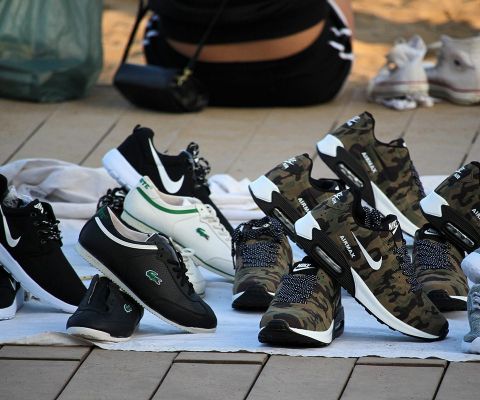What To Train For: Speed or Distance?
 What To Train For: Speed or Distance? www.walkjogrun.net
What To Train For: Speed or Distance? www.walkjogrun.net If you find yourself wondering if you should be training for speed or distance, you are not alone. It can be tempting to focus on only one thing. It can also be tempting to try to do everything all at once. Don’t fall into either trap!
To be a well-rounded runner, you may find yourself doing a little bit of everything. It is also perfectly okay to focus on one aspect of your running for a time period and then to focus on another. You should also consider where you are in your running before you decide on your primary goals or objectives.
If you’re a New Runner, Read This
For new runners, I always recommend that your primary objective should be to build consistency in your workouts. In other words, work on building your cardiovascular base.
As a beginner, you need to just get used to running a few times a week on a consistent basis before you worry too much about anything else.
Certainly, you can try to build a bit more distance into your running, but we aren’t talking anything huge here. Just get out there 3-4 days each week for a couple of months. That is how you grow as a runner in the early stages of running.
Once you establish yourself as a runner and get comfortable with it, you can start to think about some more serious training.
Setting Your Running goals
If you are training for a distance event, you probably want to focus most on building up your distance. When you have a long race, such as a 13.1 or 26.2, you need to work on increasing mileage. Makes sense, doesn’t it?
If you have done multiple races like this or if you are a veteran runner, you might have a time goal on your brain. In that case, you probably are thinking about how to work speed and distance into your workout regiment. You can have your cake and eat it too!
Looking at the most popular online training plans for these distances, you will see that the novice and beginner plans just include mileage.
That is because at this stage of the game your objective is just to get the time (mileage) on your feet. When you start to get into plans for your more experienced runners, they add in speed work.
What Is Considered Long Distance Running?
That is a loaded question. Think back to high school. The distance runners were those who ran anything from the mile on up. Most adult athletes race 5K and further. If you ask me what a long run is, I will probably answer “7 miles or more.” But to be truthful, distance is really in the eye of the beholder since perspective is truly important.

When I started out running, two miles felt like a long way. The day I hit my first 5 miler, that felt far. I have trained for 17 half marathons and each time I hit the double-digit runs, it still feels like a milestone. I guess the point is that what constitutes “far” really depends on your experience and frame of reference.
Is It Okay to Run Long Distance every day?
If you like distance running and are training for something long like an ultra, sure you can run long every day. However, before you embark on a journey like that one, you should be sure you have an adequate base.
Don’t attempt to jump into something like daily longer runs until you are ready. Rushing this can lead to injury.
Even ultra-marathoners started somewhere and it wasn’t 20 miles a day from day one. The build-up is very important.
What Is Speedwork Running?
Typically, you are either running for distance or speed. When running for speed, most of us are running shorter distances. I think about time on the track, for example, when you say “speed.”

Of course, there are other ways to work on speed. Fartleks are just speed intervals. You can intermix speed bursts within any distance you are running.
Your coach may give you repeats to perform at a specific pace, for another form of speed work. If you are doing mile repeats at a particular time, one that is challenging for you to run, that is speed work.
Try Seasonal Training
I actually did something I called seasonal training for quite some time. Since I am fond of running a spring half marathon, I typically started training for that half each year in December or January and that continued until my race in April or May. That training had me primarily focusing on long-distance running during the cold months.
When summer came, I had many other interests besides running. For 12 years, I was the aquatic director of a local pool during the summer.

That gave me unlimited and free access to an Olympic length outdoor pool from June until the end of August. That means I was swimming as cross-training out of convenience and because it was a great way to beat the heat!
An avid cyclist, I also would ride my bicycle a lot. So during the summer months, I typically ran shorter distances and incorporated more
speed work. I would often pick a 5K to train for and race in August or September. That kept me running fast but short distances. My 5K PRs all happen to occur in August or September!
After that, I was usually pretty busy with coaching all fall. My running was just steady enough to keep myself in shape and to pull off an occasional 10K.
Every Thanksgiving I signed myself up to do a Turkey to Champagne holiday streak. Then guess what was next? Getting back into half marathon training shape!
As you can see, the focus shifted with the seasons. I ran this way for about ten years – with different focuses at different times.
So… Which Should You Focus On?
You are probably getting tired of hearing me say that it is really up to you – but it really is. Personally, I think both are important. As someone who has been running for quite some time, I now do a mixture of both. And guess what? I’m not even training for anything.
Most weeks I do some sort of speed work and typically end my week with a longer run. My longer runs are anywhere from 7 – 10 miles. My speed intervals are comprised of distances from 100 meters to 400 meters. Truth be told, 400 repeats are my favorite speed workout. I love to hate them.
You can have balance in your life and honestly, you don’t have to choose one or the other.















